Gao Ping: HKUST(GZ) has fresh blood and ample nutrients
The series report "Talent Interview"
- No. 3 -

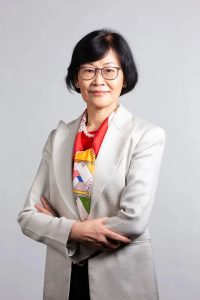
Professor Profile
Professor Gao Ping received PhD in Chemical Engineering, Cambridge University in 1990. Her PhD thesis was on “Swelling and Drawing Behavior of Ultrahigh Molecular Weight Polyethylene” supervised by Professor Malcolm R. Mackley, FREng. She went on to conduct postdoctoral research under Professor Mackley until 1993, when she joined HKUST as an assistant professor. Her research focuses are on engineering polymer microstructures for high performance materials; her research group has made a number of seminal and technological breakthroughs by translating basic science into great technology.
In 1993, Gao Ping completed her doctoral and postdoctoral training at the University of Cambridge in the UK. At an academic conference, she met Polock Yue, the founding head of the Department of Chemical Engineering at the Hong Kong University of Science and Technology (HKUST). In his description, the new university located in Clear Water Bay, Hong Kong, which had been established for less than two years, not only had beautiful scenery but also a thriving academic atmosphere. It aspired to break the situation of Hong Kong's lack of emphasis on scientific research and develop into the "MIT of the East." Despite having no shortage of job opportunities, Gao Ping was deeply attracted to this new university and chose to join it.
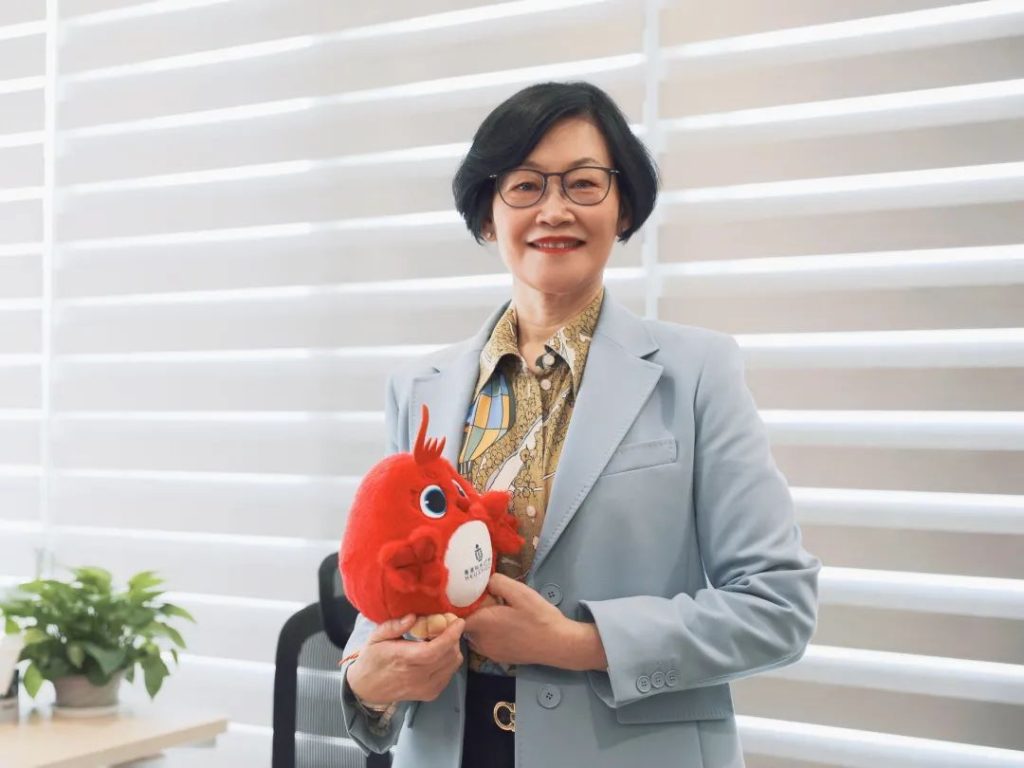
In the eyes of Gao Ping's students, she is a person whose intellectual capacity can be compared to that of a supercomputer even in the era without one. She has devoted much effort to studying "a thin film" for decades and has achieved multiple internationally leading research results. "Science has depth, application has prospects, and society has influence" is Gao Ping's belief in conducting scientific research.
Just as she joined the newly established HKUST 30 years ago, Gao Ping, as a senior professor of HKUST, joined a new university - the HKUST(GZ), which is rooted in the same origin as the Hong Kong University of Science and Technology. She served as the first head of the Advanced Materials Thrust in the Function Hub. Gao Ping firmly believes that "new" is the source of creativity. On this new soil of HKUST(GZ), infinite possibilities will be nurtured.
Hello Professor Gao Ping, could you please briefly introduce your research field and main achievements?
My research focuses on designing high-performance polymer macrostructures by controlling the microstructure of polymers. My team has made breakthroughs in the development of polymers, especially high molecular weight polyethylene, using the foundation research of molecular dynamics and micro-rheology. Our original research on the rheology of liquid crystal polymers was adopted in the 2nd edition of an undergraduate textbook “Introduction to Synthetic Polymers” by Ian Campbell, 1999, Oxford University Press.
My research group invented the world’s strongest bullet-proof carbon nanotube reinforced UHMWPE nanofiber by engineering order parameters in UHMWPE that exhibited 80 times of the tensile strength of stainless steel 304 with the same mass. I proposed a three-stage reinforcement hypothesis, and elucidated the unique simultaneous stiffening and toughening mechanisms in nanocomposites. The work was in collaboration with world’s largest bullet-proof fiber manufacturer, DSM (the Netherlands).
My research group has since started designing 2D but ultrastrong UHMWPE membranes. By engineering molecular conformations in the nanostructures of the material, and fabricating a topologically triangulated Delaunay structure in the plane of the film, we discovered the world’s strongest, and toughest 2D membrane; the filed patent was featured at the USPTO’s website as a news feed on 4 July 2019. The significance of the discovery means that nanomaterials can be used independently as macroscopic load bearing structures, enabling ordinary people to witness and appreciate nanotechnology. On 21 December 2020, we have developed an ultrathin polymer nanofilm, which is not only 25 times stronger than stainless steel with the same mass, but is also extremely transparent, gas-permeable, water-proof with adjustable porous properties, making it suitable for use as wearable devices, medical protection, desalination, electronics, solar cells and many other cutting-edge technologies.
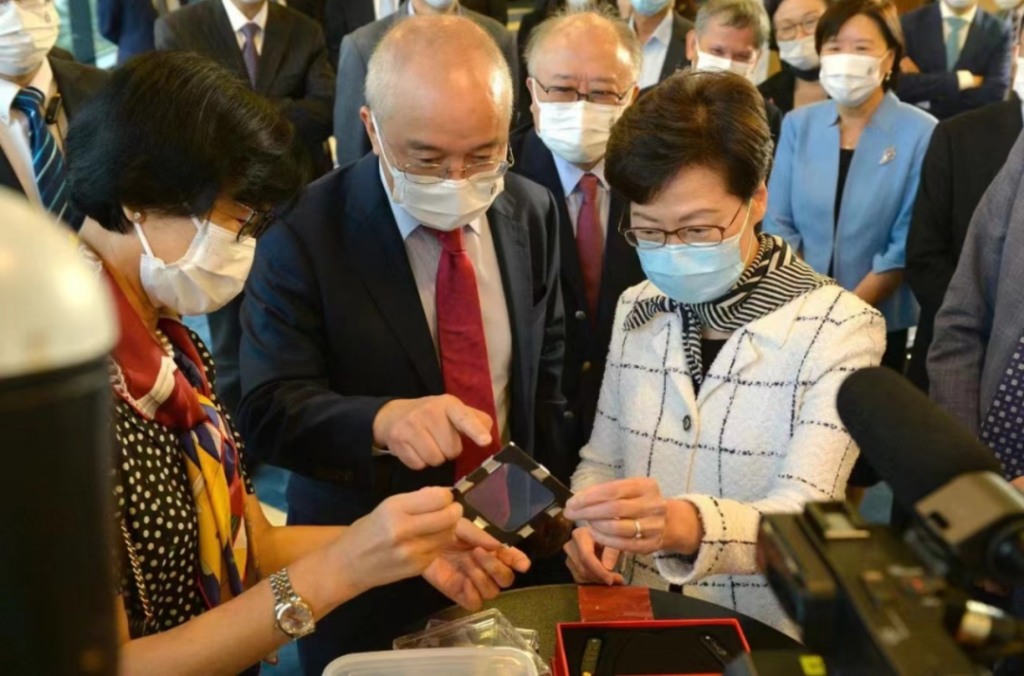
After completing your postdoctoral training at the University of Cambridge, why did you choose to join HKUST, a new university that had been established for less than three years at that time?
At an academic conference, I met Professor Polock Yue, who was then the head of the Department of Chemical Engineering at HKUST. He listened to my presentation at the conference and asked me many questions afterward, essentially interviewing me. His attitude towards work was very serious, and he described the environment and blueprint of HKUST to me. At that time, the global economic situation was not good, and the atmosphere was very bleak, but this new university gave people a lot of hope. Other universities focused more on teaching, while HKUST emphasized research and provided ample funding for researchers. I am particularly interested in new things, so I came without much consideration. I remember that the competition for the application was very fierce at that time. In our batch, there were 146 applications, but only two people were finally admitted.
I think that people work not for the sake of work itself but to spend time on things that they value. Joining a new university is definitely not just for the name. For example, although HKUST was not well-known at that time, it was full of vitality. Except for a few senior professors who served in management positions, everyone in the department was very young and full of energy.
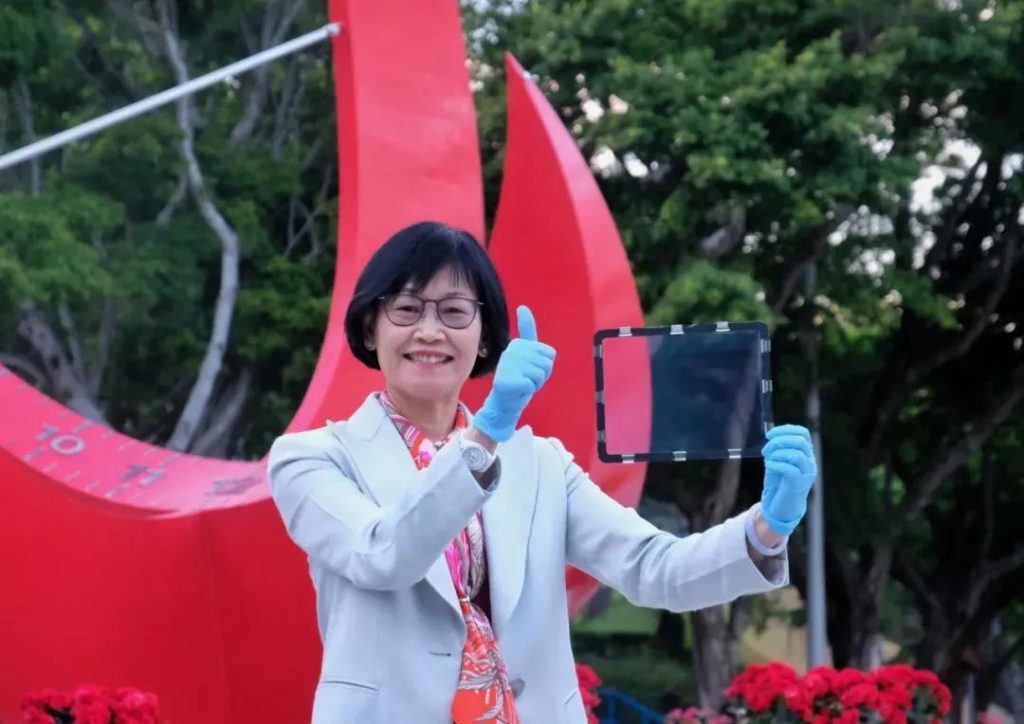
You worked at HKUST for almost 30 years. Why did you choose to join HKUST(GZ)?
Isn't there a saying that changing blood makes people younger? I think that being young as a person is similar to being young as a university, full of vitality and energy, and full of enthusiasm for work. For teachers of our generation who joined HKUST, our work habits have not changed since we first entered the university. I basically don't feel that I should rest and not work on weekends. Sometimes, when I go hiking with my family and friends, the whole day passes by, although I feel relaxed and happy, I still feel somewhat guilty that I didn't use this day to work.
Working at HKUST is simple, and it is even simpler at HKUST(GZ) without the constraints of established institutional norms. In addition, the Guangzhou municipal government has provided the university with ample funding and policy support, and with Prof. Lionel M. NI as the founding president, I thought, why not give it a try?
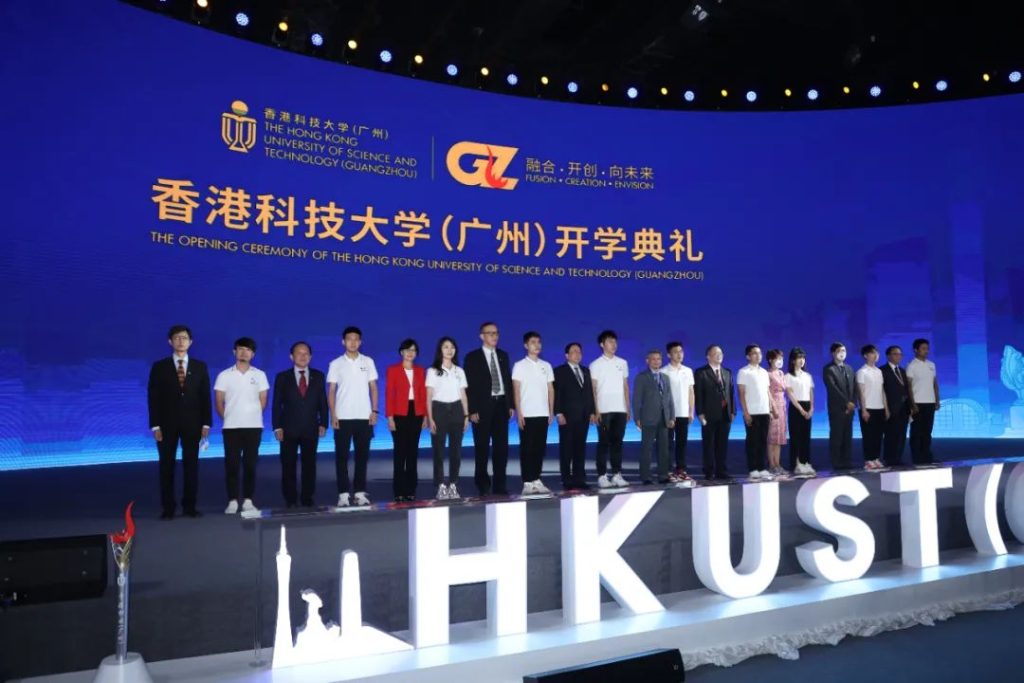
How do you feel about working and living at HKUST(GZ)?
Due to the impact of the epidemic, I didn't set foot on the completed campus until mid-August last year. At that time, the campus environment was not yet perfect, and I even had some concerns about whether the university could start on schedule.
However, almost overnight, the university became clean and refreshed. I think this is the power of "new". In a new university, everyone's work attitude and mental state are very different. Taking our only administrative staff in the Advanced Materials Thrust as an example, she is responsible for various trivial matters in our entire Thrust. She can respond to everything and make sure every detail is taken care of, whether it is a workday or a weekend, no matter how late it is. When there was a problem with the water pipe in my dormitory, I reported it for repair, and within ten minutes, a staff member came to my room to handle it. This kind of speed is hard to imagine in other parts of the world.
This is the feeling that HKUST(GZ) gives me. It is filled with fresh blood, and the blood is rich in nutrients and oxygen. Here, everyone works hard and is passionate about what they do.
We have met your students, and they all have great respect and even admiration for you, saying that you are the "big shot" and "goddess" in their hearts. What are your standards for admitting students, and how do you train them?
I am most concerned about the working ethics of my students. To use Einstein's mass-energy equation E=mc² as an analogy, research results = intelligence X effort². I believe that by the time one reaches a Ph.D., there is not much difference in intelligence among individuals, and effort has a greater impact on the final research results.
I pay attention to the personality, abilities, and strengths of different students and give them enough time to explore their interests. I don't impose a specific direction on them. Some students are particularly sensitive in personality, and some students may need more guidance. Some students do not like teachers to interfere too much, and so on. It is easier said than done to teach each student according to their aptitude, and we should give each student sufficient respect and patience.
Every Saturday is our group meeting time with the students. From morning until night, I schedule a half-hour meeting with each student individually. I have a "bad habit" of going to the laboratory after 10 pm to see how they are doing, and students can ask me questions at any time.
In research and work, I have high standards and strict requirements. I tell my students that what Professor GAO says is not necessarily always right, and they can point out any problems with our research. I may not be a particularly friendly person to my students, as I am much more strict than they expect when pointing out their problems. However, in life, I cherish each student very much.
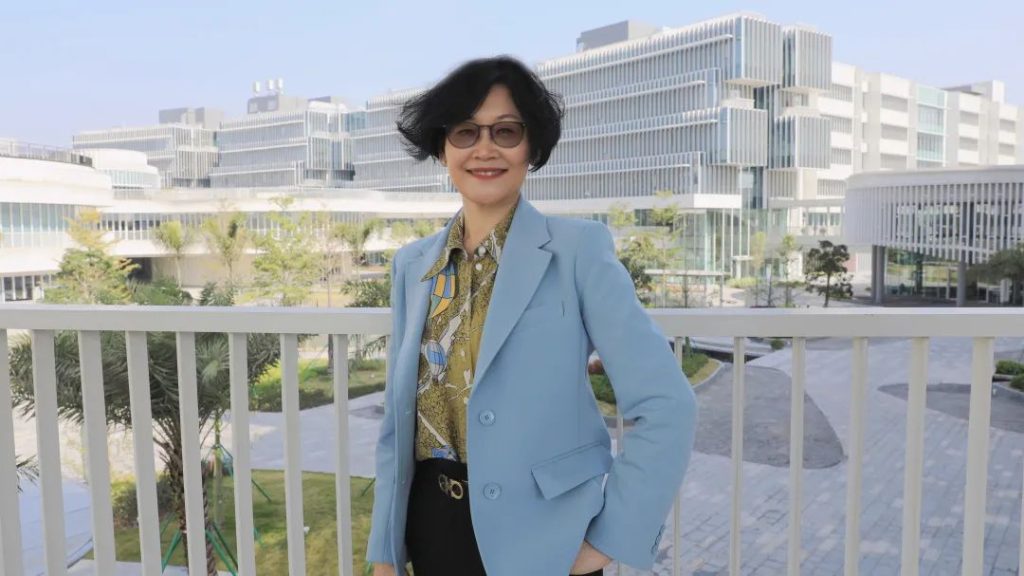
You are the Head of the Advanced Materials Thrust, what qualities do you value the most when recruiting faculty members?
The most fundamental principle is that "science must have a high quality." Therefore, we look at the basic professional abilities of new faculty members. Secondly, we consider whether the candidate can work with others. Nowadays, the development of a single discipline is very limited, and it is difficult to conduct high-quality and influential scientific research. Finally, whether the candidate has a clear plan for their own research development is also an important consideration factor.
Recruiting exceptional talent is a two-way selection process. What talents are most concerned about is their own future development, the level of students, laboratory conditions, and so on. At HKUST(GZ), we have adopted a new model that does not fund personal labs for faculty members but instead establishes theme-based labs with clear themes and broader coverage. During the interview process, we have ample communication with the candidates. Most of the new faculty members we have recruited recognize and appreciate our philosophy.
To summarize, we highly value solid foundational skills, an open-minded approach, determination, clear goals, and a well-defined plan when selecting talent.
If you could recommend HKUST(GZ) in one sentence to invite more talents to join, how would you express it?
This is the best place for future development. If you have aspirations for the future, you should come to HKUST(GZ)!




